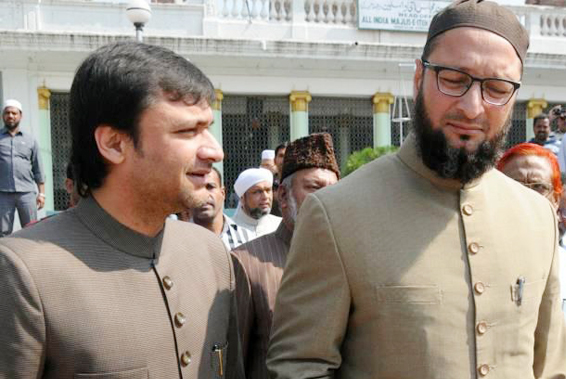
Hyderabad, Jan 21: MIM chief and Hyderabad MP Asaduddin Owaisi, against whom a non-bailable warrant was pending in a 2005 case, on Monday appeared before a court in Sangareddy town of Medak district which remanded him in judicial custody till February 2.
Asaduddin, who is accused number 1 in the case, filed a 'recall petition' in the court seeking cancellation of NBW.
However, the court dismissed his petition and remanded him in judicial custody till February 2, a senior police officer said.
Asaduddin, along with his brother - jailed Majlis-e-Ittehadul Muslimeen (MIM) MLA Akbaruddin Owaisi, were among others booked by the Patancheru police for obstructing the then Medak Collector A K Singhal from discharging his duties, among other charges.
Following his remand, Asaduddin was in the process of moving a bail application in the court, sources said.
Earlier, Akbaruddin Owaisi, who is under judicial custody in connection with an alleged hate speech, was produced before the court in Sangareddy town on January 17 by the Patancheru Police for execution of NBW in the case registered against the legislator in 2005.
The case was registered on a complaint by a revenue official that MIM leaders, including Akbaruddin Owaisi and his brother Asaduddin Owaisi, protested demolition of a place of worship at Muttangi village near Patancheru during a road widening process of Hyderabad-Mumbai National Highway.
They had allegedly engaged in heated arguments with the then District Collector A K Singhal and other officers.
Subsequently, some MIM leaders had appeared before the court and filed 'recall petition'.
However, the Owaisi brothers "failed" to appear before the court, after which a non-bailable warrant (NBW) was issued against them as they did not turn up in court in connection with the case registered in 2005.
Owaisi brothers and others were booked under IPC sections 153-A (promoting enmity between different groups on grounds of religion), 147 (rioting), 186 (obstructing public servant while discharging duties) and seven other IPC sections.





Comments
Add new comment